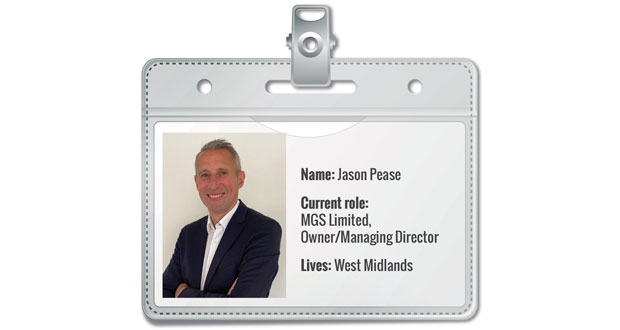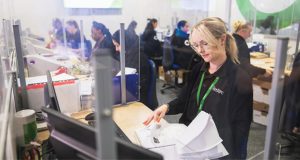Q: What first attracted you to working in FM, did you have much awareness of the profession?
I remember when my parents started their own subcontracting door company in the early 1980s, I guess when FM was first starting really. The idea back then was to have someone based within the building who knew almost everything about how it worked.
That base principle remains the same today albeit as a specialist subcontractor/provider, and having worked for a major FM, I think we are very fortunate to be able to see things from “both sides of the fence”.
Q: How did you progress through the profession to your current role?
My parents’ door installation and maintenance company was acquired by a large international door company in 1999, I remained there for 20 years, eventually joining the Board as UK Service Director. I then joined a major UK based M&E/FM provider and had four great years there, before returning to my base industry in 2019, reverting to type as it were, but I guess it’s always been in the blood!
Q: What have you found the most challenging experiences working in FM?
Having worked in an M&E / FM environment, and now as a subcontractor to the industry, my view is hopefully balanced. The demands on the industry now – in safety, compliance, performance and margin, have never been higher, with COVID obviously adding even greater pressures. However, when all parties come together openly, i.e., client, FM/M&E provider and supply chain partners, all obstacles can be overcome. Currently, one of the main pressing questions and challenges is the reoccupation of workspace but I am convinced this will happen soon, when it is fully safe to do so of course, and we will bounce back strongly. COVID has forced firms to consider how people access and use their buildings, with many updating their building technology and systems sooner than planned out of necessity to protect their staff and customers, as well as competing to make office spaces attractive, vibrant and a place people want to be.
Q: What have you found most satisfying about working in the sector?
We provide specialist technical entrance solutions to the industry, and there is nothing more satisfying than to be presented with a real problem, and using our vast experience to solve it. FM is about making people’s lives safer, cleaner and easier, so it’s really satisfying to be able to help our clients to do this, especially when you can solve a real issue, and the process is far easier than they first envisaged.
Q: What qualities do you think are most needed for a successful career in FM?
Patience, teamwork and a “can do” ethos.
Q: What has changed about your job role since the COVID-19 crisis? E.g. home working, furloughed, redeployed?
In March last year, despite a large order book, we decided to close the factory and maintain only service cover (emergencies and essential maintenance) in the field. We look after a lot of large buildings, hospitals, and infrastructure, so we obviously had to be available to our clients, whilst ensuring we operated in a safe manner.
We also had to deal with a lot of supply chain issues ourselves at the time – for example most/all of the glass manufacturers closed. We therefore furloughed the fabrication engineers and some office staff, with the remainder deployed from home or field based. Things were very tough for a couple of months; I was even out back on the tools myself a few times! However, this period did give me time to reflect on the wider business as our customers were looking for help as they prepared for reopening. As part of our entrance updates, we diversified into COVID-19 protection screens for high-spec reception and welcome desks, and started to see higher demand for converting manual doors to automatic, fitting touch free entrances, where doors previously operated by push pads were no longer desired.
I am pleased to say this paid off for us, and we had all staff back from furlough by July. The outbreak has highlighted key strengths of the FM industry – Adaptability and continual improvement, whilst keeping cost and environmental impact low.
Q: What is your organisation doing to ensure the wellbeing of staff – whether working at home or returning to the workplace?
MGS have undertaken a series of COVID-19 specific measures to ensure our staff, engineers’ and of course customers’ safety. We have completely remodelled the work stations of our office and factory, installed (our own) COVID protection screens, installed (our own) automation and touch free devices to minimise door contact, and like many organisations, have embraced technology to ensure remote workers are constantly updated and in touch with the office. I was so proud of my team’s commitment and resilience as we navigated through these changes to work differently.
Q: Do you believe the pandemic has highlighted the important role of the FM sector and what areas do you see as most key?
Absolutely, this is more prevalent than ever, and the industry will continue to lead when it comes to the vital subject of getting people back into work space, so the preparation for this is clearly of great importance. FM has been in the spotlight as companies rapidly adapt working practices and building fabric. The sector plays an invaluable role in enabling companies to do so, both efficiently and with minimal commercial impact.
Q: What advice would you give to someone coming into the profession now?
Go for it! This is a fabulous industry with so many different aspects to it, some of which may lead to different areas within the profession itself. I’d also say it’s great to really involve oneself in problem situations and learn from them – there is so much knowledge around – never be afraid to ask.
Q: Which of your achievements are you most proud of during your career?
This is very recent so easy to answer! I am both proud and delighted to have been able to place two apprentices within MGS on the landmark Automatic Pedestrian Door Apprenticeship scheme launched this year. Not only is it a great opportunity for young people to start a career in a growing industry, but for MGS to have two of the eleven UK wide apprentices on the scheme, really does make me proud.
Q: What do you predict could be the main changes to the FM sector post pandemic?
Clearly, COVID has changed everything in our lives and will continue to play a large part for years to come. I think many of us initially believed things would be back to normal by the back end of last year but what this has taught me is how resilient we are, and we will clearly have to continue to “manage” this pandemic over the coming months and years. Of course, flexibility and technology are vital, but the pandemic and lockdowns have also demonstrated how people and communication are still key.





